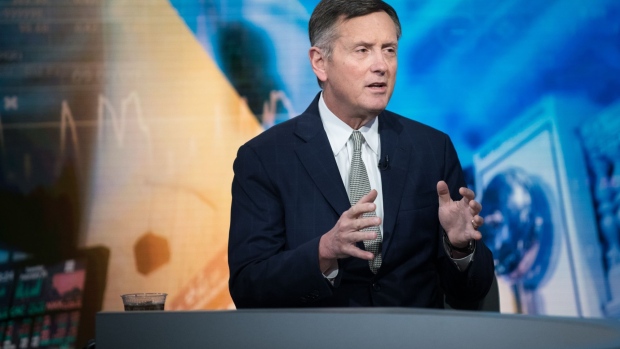
Taper conditions have ‘all but been met,’ Fed's Clarida says
BNN Bloomberg
The U.S. isn’t headed for the kind of “stagflation” that developed in the 1970s, when unemployment and inflation rose in tandem, Federal Reserve Vice Chair Richard Clarida said.
The U.S. isn’t headed for the kind of “stagflation” that developed in the 1970s, when unemployment and inflation rose in tandem, Federal Reserve Vice Chair Richard Clarida said.
“I actually lived through, as a college student, the ‘Great Stagflation’ of the 70s, and I think there are a lot of differences,” Clarida said Tuesday while answering questions after a virtual speech at the 2021 Institute of International Finance Annual Membership Meeting. “First and foremost, the 1970s were a decade of pretty substantial policy mistakes, in monetary policy. And I think central bankers learned their lesson, and I would not see a repeat of those policy mistakes.”
U.S. inflation, as measured by the Fed’s preferred gauge, was 4.3 per cent in the 12 months through August, well above the central bank’s 2 per cent target.
“My baseline case is not for stagflation over the medium-run horizon. It sort of has a flavor of that right now,” he said. “In the U.S., because of the bottlenecks, most folks are tracking a pretty modest increase in aggregate demand in the third quarter, with higher prices. But I don’t think that’s going to be the trend going forward.”
In his pre-Q&A speech, Clarida -- a Republican who was appointed to a four-year term at the Fed by President Donald Trump in 2018 -- presented an upbeat view of the economic outlook, arguing that the conditions required to begin tapering the U.S. central bank’s bond-buying program have “all but been met” amid relatively high inflation and ongoing rehiring in the job market.





















 Run 3 Space | Play Space Running Game
Run 3 Space | Play Space Running Game Traffic Jam 3D | Online Racing Game
Traffic Jam 3D | Online Racing Game Duck Hunt | Play Old Classic Game
Duck Hunt | Play Old Classic Game